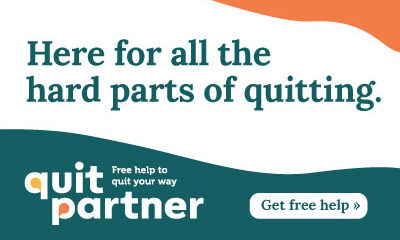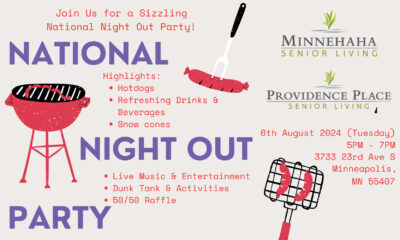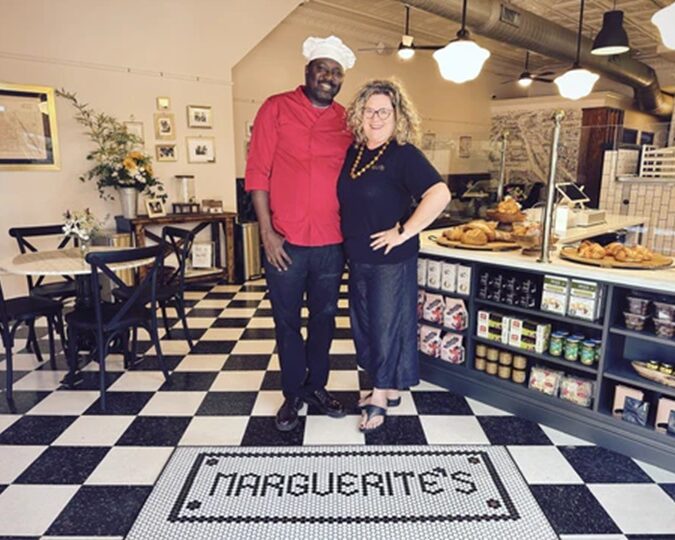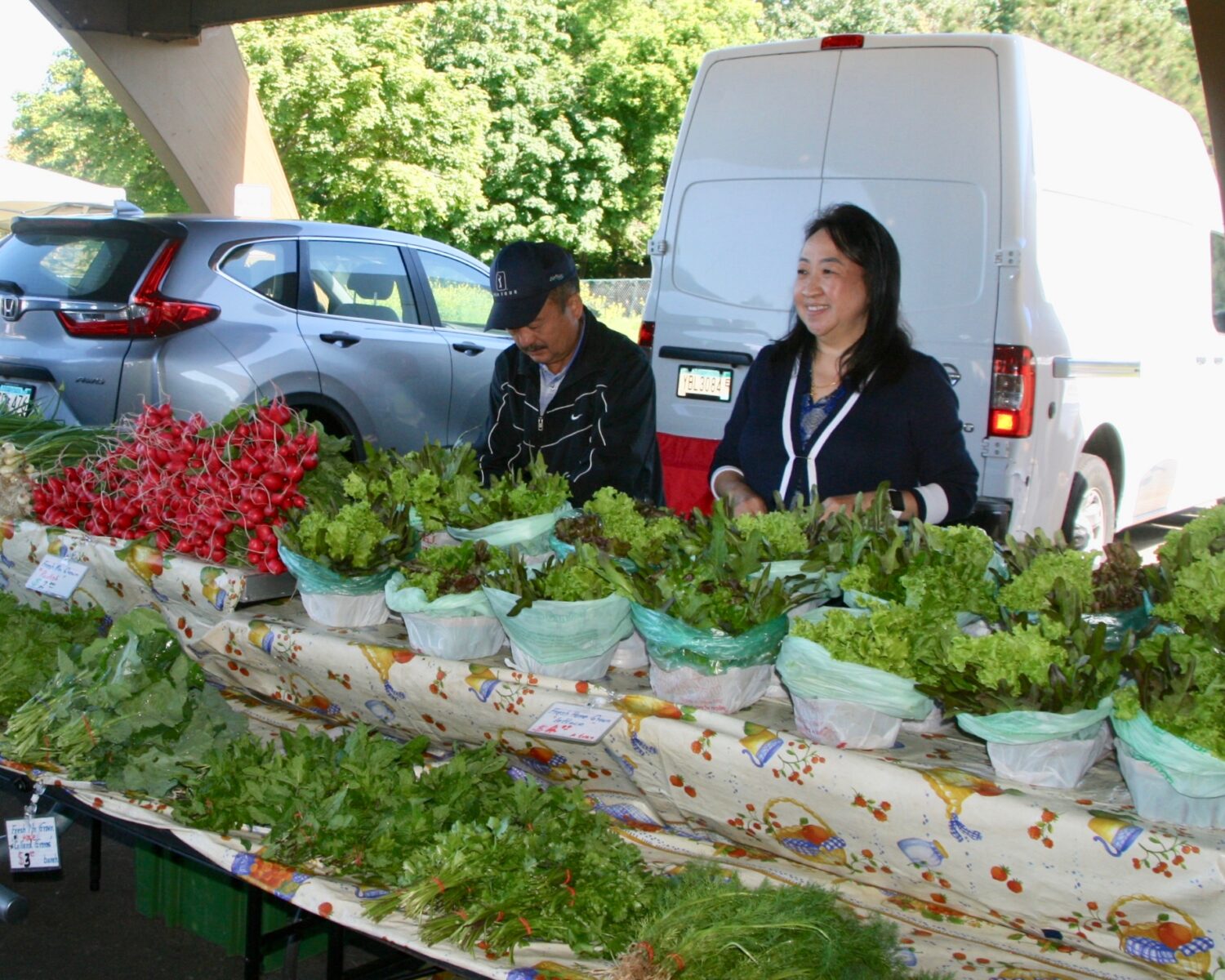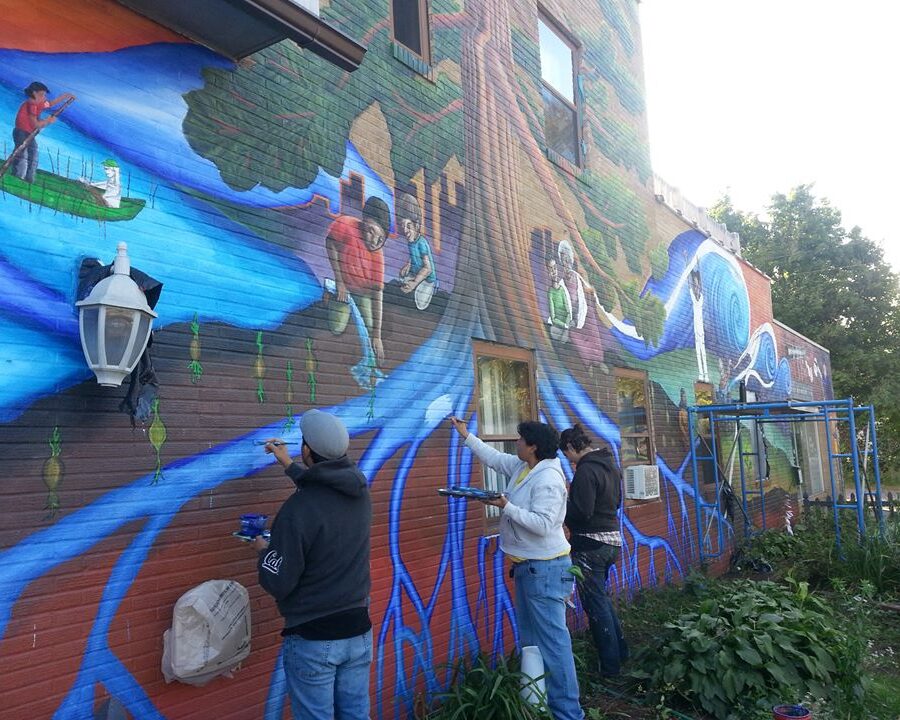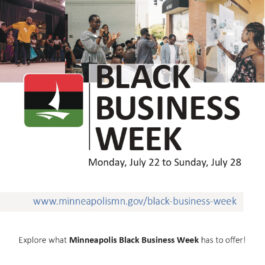There is only one Carei Thomas. He makes more music with two fingers than a lot of people do with 10. Since a crippling illness five years ago, Thomas, a master of musical improvisation, has limited use of individual fingers. He says when he plays the piano “it’s no ‘Flight of the Bumblebee.’ ” He sometimes uses the keyboard as percussion and sometimes plays slow beautiful melodies. Sometimes he creates sound environments using a synthesizer. Because his music is so integrated with his “selfness” he will make music any way he can.
Thomas’ flexibility and adaptability have been well known for years. In Carei-lore, the story goes that he once arrived at a gig to play the piano, the instrument had no keyboard, but it was not a problem: He played inside on the strings.
Carei Thomas, a South Minneapolis neighbor and friend, community leader and accomplished and inspired musician, received a St. Paul Companies Leadership Initiatives in Neighborhoods (LIN) grant earlier this year for Gift Shops, which is meant to foster neighborhood talent.
According to the grant application, “It’s an inter-generational, neighborhood-based creative process that involves residents sharing their skills and artistic talents in ways that integrate into the fabric of everyday community life.”
Thomas says, “I’m just another one of us trying to keep the gates open to affirm our gifting.” His life helps explain what Gift Shops can be. As musical director of the Interact Center for Visual and Performing Arts, a performing group for physically challenged and specially-abled people gifted in varying arts disciplines, Thomas is in a unique position to act as a resource person, networking talented people with Gift Shops. Thomas is an artist, heartist, who loves people. Thomas the community leader and Thomas the musician are one and the same person.
Since at least the ’70s, artists have been talking about the line between art and life. I used to know a guy who wanted to “make his life a work of art.” Art is continually being redefined. Art is no longer considered just “the work,” the end result of the process, the object that can be bought, sold and possessed. People are asking if art is about producing works or if art is the way you go about your job at Walgreens, for example. The art in Thomas’ performances and recordings is obvious. I think his life in the community is also a work of art, a poem.
His art is his life, his life is his art. It’s a world of content substance, no fluff. It makes sense. He knows what to play when, or when to play what, because he’s always listening. There are surprises. There is excessive beauty. Intelligence and sensuality are everything. Virtuosity is neither here nor there.
In life and in music Thomas tries to create structures and structured improvisations in which people can meet the demands of the structures by “elevating and broadening the design with their selfness.” No one is “straitjacketed.” He sees light in sound and light in people. “There is art in everyone.” This is the spirit of Gift Shops.
Throughout his life, Thomas has responded to many styles of music. In the first half of his life he soaked up the influence of every imaginable kind of music, from jazz to gospel to rhythm and blues to 12-tone to classical to neoclassical to Celtic to bluegrass. “In a quasi-candid way I can play in different styles because those voices are in me … I’m easily sensitized by energy in my surroundings, saturated by what’s around me.” He’s open to people in the same way.
Adulation is not satisfying for Thomas. Praise is too static; he is only satisfied if his work goes somewhere and does something. “Art is saving if it is circular.” If his work/life moves someone, then their work/life will move someone else and it continues on and on. “I don’t do artsy entertainment. After a performance I want us all to feel fresher and cleaner, to be provoked to think about the person next to us.”
I’ve known Carei Thomas for many years. When he won the much deserved Bush Fellowship in 1993, his friends were ecstatic. His concert at the Walker Art Center soon after, in which he invited his mother, Mary, to play an unusual instrument called a flexitone, was nothing less than celebratory. A few weeks later, Thomas presented a fascinating class in an eclectic music appreciation series to kids in my church. They created an avant-garde piece of music using sounds corresponding to numbers and colors.
The next time I had news of him was nearly two years later when I learned he was recovering from a rare, life-threatening illness, Guillain-Barre syndrome. Since then, in the course of his recovery, Thomas has played with many Minneapolis performers in venues such as the Landmark Center, Patrick’s Cabaret, the Loring Bar, artists’ studios and Powderhorn Park.
Besides his music, people come to hear Carei’s discourses. He doesn’t talk to hear himself talk, although he does love to talk. He’s always educating. He often lists names of great artists as a reference to a certain consciousness or as a suggestion of a body of work to investigate. And he gifts his audiences with rare honesty. During the early part of his recovery, he dramatized his feelings of despair and childlike dependency, screaming, “Mommy, Mommy!” It was heartbreaking and helped us to understand.
Carei says, “The intimacy is the important thing …We need familiarity. We’re living in a sneaky feelingless period, a kind of panexternalism. We need intimate places where you can give what you have the way you are.”




